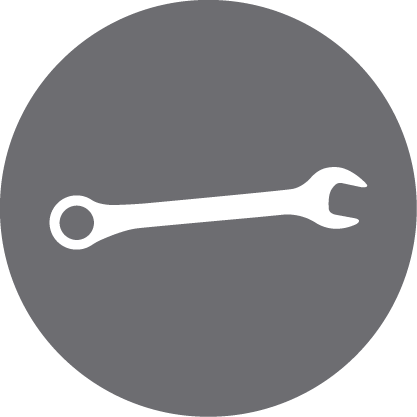We get it: SEO is complicated and the rules shift (almost literally) day by day. After all, Google uses more than 200 unique algorithms to determine search results, and they’re tweaking their formulas all the time. Here at the EXTEND GROUP, our job is to keep our finger on that ever-changing SEO pulse, but it’s easy to understand why this particular marketing strategy causes so many business owners confusion, whether they’re working with an SEO consultant or not.
Here are the top 5 SEO mistakes that we see on a regular basis, from mildly awful to downright egregious. (Don’t worry, we’ve also provided solutions for each!)
1. Targeting the Wrong Keywords
Choosing the right keywords is all about the research, and if you don’t do it right, your SEO won’t work. In other words, getting those keywords just right is a deal-breaker. Successful keywords meet a number of requirements, including:
- Relevance to your site’s content. Don’t pull the old bait and switch! Choose keywords that accurately reflect the contents of your site so that searchers find what they are looking for — and are happy when they get there.
- Relevance to your potential customers. You’ve got to put yourself in their shoes. For instance, if you’re a wedding planner, should you use keywords like, “organizer of upcoming nuptials?” If you sell gloves, should you use keywords like, “purveyor of finely knit hand-warming garments?” It doesn’t need to sound pretty — it just needs to click with the search phrases your potential customers are entering, and that means matching your customers’ vocabulary.
- High conversion rate. Don’t choose keywords based on traffic alone. While it may seem seem counterintuitive, high traffic is relatively easy to achieve, but conversions aren’t. Use analytics to evaluate keywords based on conversion rate, not traffic.
- Competitive — but not too competitive. You can also use analytics to choose keywords that are effective, but not so popular and competitive that you’ll easily be outranked by the big boys with the massive ad budgets.
2. Keyword Stuffing
Please, please, please don’t keyword stuff. First of all, no one likes it because it’s unpleasant to read and it annoys potential customers. Second of all, it doesn’t even work. Once upon a time, keyword stuffing used to be somewhat effective, but as technology has improved, search engines have evolved. Today, keyword stuffing won’t work and is even likely to draw Google’s attention, earning a penalty or even a dreaded blacklisting.
3. Duplicate Content
Again, as search engines get smarter, they’ve developed a healthy distaste for duplicate content. Google hates to read the same thing over and over, so ensure that you’re not using the same text on different pages within your site, even for lists and product descriptions. Rewrite and tweak content to keep it fresh and unique. On the same note, don’t copy stuff from other sites, unless you want to incur Google’s wrath. Plagiarism is plagiarism, and Google punishes it by dropping you from search results or even, for repeat offenders, de-indexing your site.
4. Poor-Quality Links
You know those backlinks from random, low-quality, low-ranking websites you paid for a year ago just so you’d have backlinks? Thanks to Google’s recent Penguin update, those aren’t worth squat anymore. Nowadays, natural links are all the rage. Strive to gain inbound links from high-ranking websites that are in a relevant niche to your site. How? By creating great, high-quality content that people actually appreciate and want to link back to.
5. Unreadable Site Features
Yes, Flash looks cool. Yes, JavaScript is great for navigation. Yes, images as headers look nice. (OK, maybe not so much.) But the problem is that search engine crawlers can’t read these features and, therefore, can’t index your site. Solutions: Avoid the Flash. Build a sitemap if you must use JavaScript menus. Always use text for headers and subheaders. Make your site’s structure as Google-friendly as possible.
SEO isn’t simple, but it also isn’t rocket science. However, the rules change all the time and there are a lot of them. But by avoiding these major missteps, you’ll up your site’s rankings and competitive edge.































